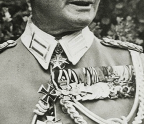

On a rainy summer evening in late August 1962 a group of 13 French and foreign conspirators attempted to assassinate French President Charles de Gaulle. Dubbed the Petit-Clamart attack for the suburban Paris commune in which it occurred, it was one of 31 such attacks on the polarizing French leader during his lifetime. As in the past, de Gaulle emerged unscathed from this latest and deadliest bid—then he commanded it was time to root out and punish the perpetrators.
The widespread dissatisfaction with de Gaulle that swept France after World War II was rooted in the nation’s history of colonialism and, more specifically, in the president’s response to French-held Algeria’s bid for independence. France had not been alone in its centuries-long acquisition of foreign “properties,” of course—throughout history every major nation in the world, including the United States, practiced colonialism. But as France had recently learned in the jungles of Indochina, there came a time in which colonialism was no longer viable.
France had occupied Algeria since 1830. In the wake of World War I increasing calls for independence by nationalist Muslims of the North African colony were answered by Paris’ promises of greater autonomy. For decades the promise went unfulfilled. Then, on V-E Day, May 8, 1945, a group of Algerian Muslim protesters organized a demonstration in the provincial capital of Sétif, demanding Algerian independence. The protesters turned violent, exchanging gunfire with police and killing more than 100 Algerian-born European colonists, known as pieds-noirs. The French military immediately responded, killing upward of 1,500 Algerian Muslims.
Nine years later, inspired by France’s defeat in Indochina, Algerian Muslim guerrillas calling themselves the (National Liberation Front), or FLN, launched a wave of attacks against military and civilian targets throughout the colony, hoping to force diplomatic recognition of Algeria as a sovereign state. Again, the French army in-country—which reached a peak strength of 470,000 troops—responded, engaging the rebels in a war that






